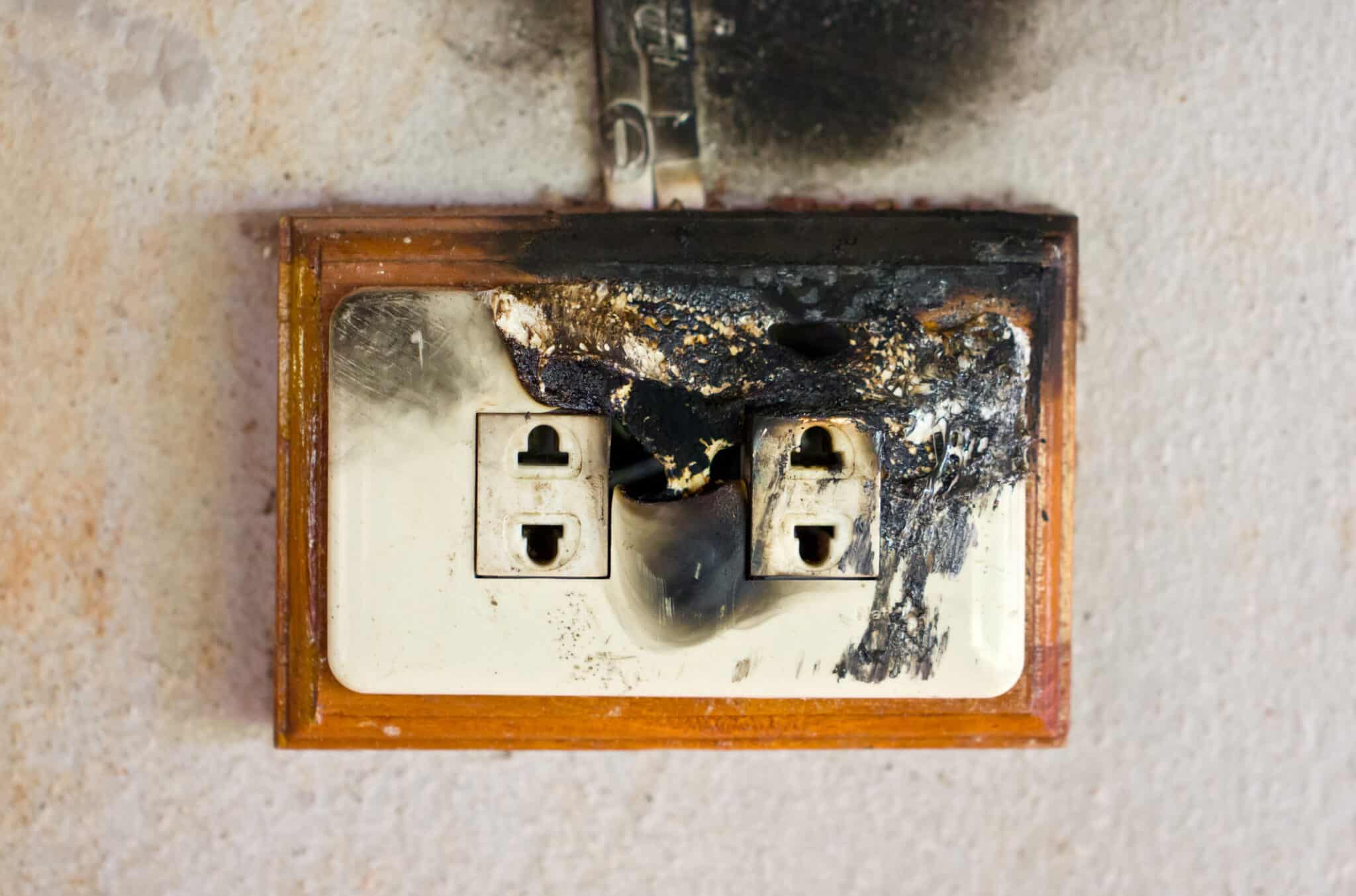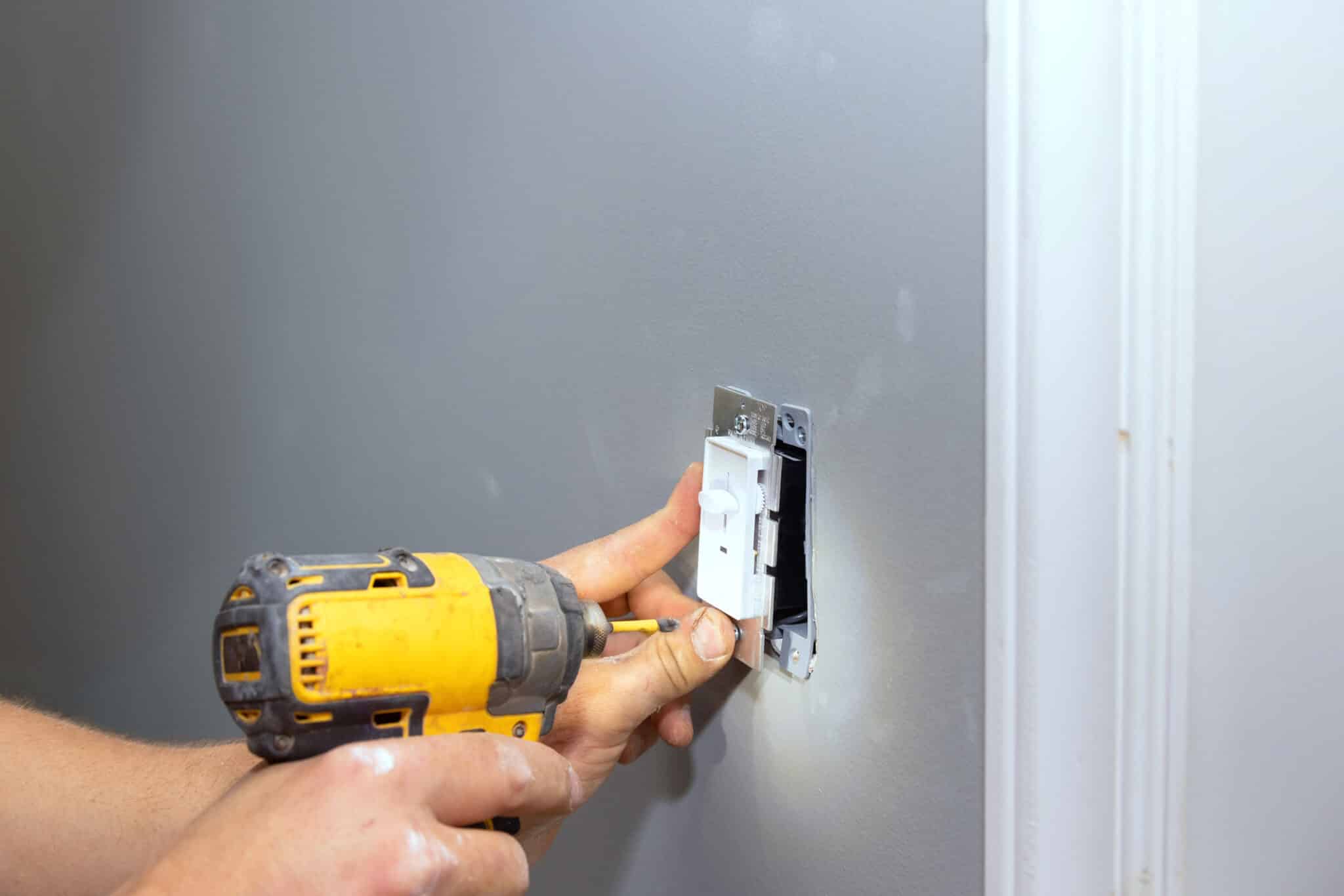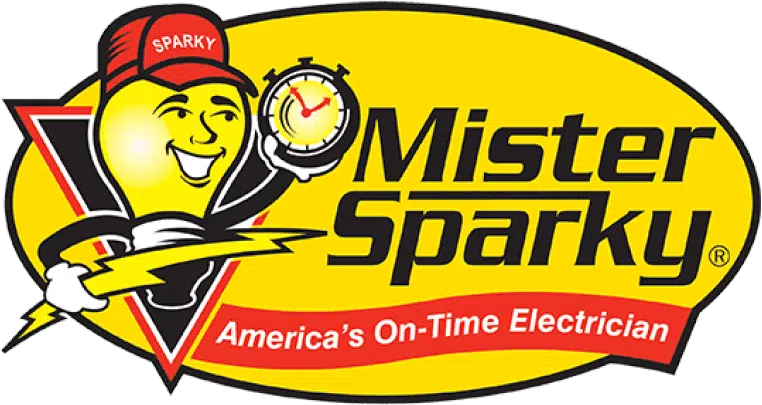As the gentle breezes of spring roll into Harrisburg, PA, it’s the perfect time to consider a thorough electrical safety audit for your home. This proactive measure not only ensures compliance with the latest electrical codes and standards but also enhances your family’s safety. Conducting an electrical safety audit can help identify potential hazards that might have developed over the harsh winter months. It’s an essential step in maintaining the integrity and safety of your home’s electrical system.
In areas like York, PA, where weather can significantly affect electrical installations, spring is an ideal season for this review. An electrical safety audit involves a detailed inspection of your electrical panels, wiring, and appliances to ensure everything is in top condition. This process helps in preventing electrical fires, shocks, and other hazardous incidents that can arise from faulty electrical systems. It’s not just about safety; it also ensures your systems are energy efficient and functioning optimally.
For homeowners, understanding what an electrical safety audit entails can be daunting. However, it’s a critical aspect of home maintenance that shouldn’t be overlooked. By identifying and resolving issues early, you can avoid costly repairs and dangerous situations in the future. It’s a proactive approach to ensure that your electrical systems meet current standards and perform at their best.
Embarking on a spring electrical safety audit is a wise decision for any homeowner. It provides peace of mind, knowing that your electrical system is not only compliant but also safe and efficient. Whether you’re in Harrisburg or York, taking this step can significantly contribute to the safety and efficiency of your home, setting you up for a worry-free season ahead.
Understanding the Importance of an Electrical Safety Audit
Understanding the importance of an electrical safety audit is crucial for every homeowner, especially those residing in areas like Harrisburg, PA. Such audits are not merely routine checks; they are vital for ensuring that your home’s electrical system adheres to safety standards and regulations. By conducting these audits, you can significantly reduce the risk of electrical fires, which are often caused by outdated or faulty wiring. More importantly, it ensures the safety of your family by preventing potential accidents before they occur.
An electrical safety audit goes beyond a basic inspection. It involves a comprehensive review of your entire electrical system, including circuits, appliances, and safety devices. This process helps in identifying any discrepancies that might not be visible to the untrained eye. For residents in York, PA, where environmental factors can affect electrical systems, such audits are indispensable. They not only confirm that installations are up to code but also highlight areas that may require immediate attention.
The benefits of conducting an electrical safety audit extend beyond safety. It also enhances the efficiency of your home’s electrical system, potentially lowering your energy costs. Efficient systems use less power and reduce unnecessary strain on your electrical components, thereby extending their lifespan. Additionally, knowing that your home meets all electrical codes provides peace of mind, which is invaluable. This is particularly important in older homes where wiring and electrical systems might not have been updated for years.
In conclusion, the significance of an electrical safety audit cannot be overstated. It is a proactive measure that safeguards your property and loved ones from potential hazards. For homeowners in Harrisburg and York, it’s a critical step towards ensuring that their homes are safe, efficient, and compliant with current electrical standards. Remember, the cost of neglecting such an audit can be far greater than the audit itself, making it a wise investment in your home’s future.
What is an Electrical Safety Audit?
An electrical safety audit is a systematic process designed to evaluate the safety and efficiency of a home’s electrical system. This audit involves a thorough inspection of all electrical components, including wiring, circuits, and appliances, to identify any potential hazards or inefficiencies. For homeowners in Harrisburg, PA, and surrounding areas, this is particularly crucial to ensure that their electrical systems are not only safe but also up to date with the latest standards and regulations.
The process begins with a visual inspection conducted by a qualified electrician, who checks for visible signs of wear and tear, outdated wiring, and improperly functioning equipment. This initial step is vital as it can quickly pinpoint areas that may pose immediate risks, such as overloaded circuits or exposed wires. Additionally, the electrician will test the operation of circuit breakers and safety switches to confirm they are functioning correctly, which is essential for preventing electrical fires and other accidents.
Following the visual and functional tests, a more detailed analysis is performed. This includes the use of specialized equipment to measure voltage, current, and resistance in the electrical system. Such detailed diagnostics help in identifying less obvious problems that may not be visible to the naked eye. For residents of York, PA, where environmental factors can accelerate electrical wear and tear, these comprehensive tests are indispensable for maintaining electrical safety and efficiency.
Finally, the results of the electrical safety audit are compiled into a detailed report that outlines any discovered issues and recommends corrective actions. This report is invaluable as it not only highlights immediate safety concerns but also suggests improvements that can enhance overall electrical efficiency. By addressing these recommendations, homeowners can ensure their electrical systems operate safely and efficiently, safeguarding their property and loved ones from potential hazards.

Preparing for Your Electrical Safety Audit
Preparing for an electrical safety audit involves several key steps to ensure your home in Harrisburg, PA, meets all safety standards. First, gather all necessary documentation related to your home’s electrical system. This includes any previous audit reports, receipts from electrical work, and warranties for appliances and components. Having these documents on hand will provide your electrician with a clear history of your electrical system’s maintenance and upgrades, facilitating a more thorough and efficient audit process.
Next, conduct a preliminary walkthrough of your home to check for obvious signs of electrical issues. Look for outdated or visibly damaged equipment, such as frayed wires, burnt outlets, or flickering lights. Making a list of these issues will help your electrician prioritize areas that need immediate attention during the electrical safety audit. This step not only speeds up the audit process but also enhances the overall safety of your electrical system by addressing the most apparent risks first.
It’s also important to ensure that all areas of your home are accessible on the day of the audit. Clear any obstacles that might block access to key components like your electrical panel, outlets, and major appliances. This will allow the electrician conducting the electrical safety audit to easily inspect these areas without hindrance. In cities like York, PA, where homes might have unique architectural features that obscure electrical systems, this step is particularly crucial.
Finally, schedule your electrical safety audit during a time when you can be at home. Being present allows you to provide insights and receive real-time feedback from the electrician about the condition of your electrical system. It also gives you the opportunity to ask questions and understand the specific needs of your home’s electrical setup. By following these preparatory steps, you ensure a smooth and effective electrical safety audit, keeping your home safe and compliant with current standards.
Key Areas to Inspect During an Electrical Safety Audit
When embarking on an electrical safety audit, certain critical areas of your home require meticulous inspection to ensure everything is functioning safely and efficiently. The electrical panel, often considered the heart of a home’s electrical system, should be the first checkpoint. It’s essential to verify that all circuit breakers are properly labeled and functioning correctly. This helps in preventing electrical overloads, which are common sources of home fires.
Next, attention should be turned to the wiring throughout the home. Older homes, especially those in historical areas like Harrisburg, PA, might have outdated wiring that does not conform to current safety standards. Look for any signs of frayed or exposed wires, which pose a significant risk for electrical fires and shocks. Ensuring that the insulation around wires is intact and that the wiring is up to code is crucial for safety.
Another key area to inspect includes outlets and switches. Each outlet should be tested to ensure that it is securely fastened and fully functional, with no signs of damage or unusual wear. Ground Fault Circuit Interrupter (GFCI) outlets should be tested to confirm they trip correctly, which is vital in areas prone to moisture such as kitchens and bathrooms. This is particularly important in regions like York, PA, where varying climate conditions can affect electrical components.
Lastly, lighting fixtures and appliances should not be overlooked during an electrical safety audit. Ensure that all fixtures are securely mounted and that bulbs are the correct wattage to prevent overheating. Appliances should be checked for proper grounding and secure plug connections. Inspecting these elements not only contributes to the efficiency of your home’s electrical system but also enhances overall safety by reducing the risk of electrical malfunctions.
Common Electrical Hazards to Look Out For
When conducting an electrical safety audit, it’s crucial to be aware of common electrical hazards that could pose risks to your home and family. One of the most prevalent dangers in homes, especially in older structures found in Harrisburg, PA, is overloaded electrical circuits. These can easily go unnoticed without a professional audit but can lead to serious safety issues, including the risk of fire. Identifying and rectifying such issues during the audit can help prevent potential disasters.
Another significant hazard to watch for is outdated or faulty electrical wiring. In many cases, the wiring may have degraded over time or may not meet current safety standards, which is particularly concerning in historical areas. During an electrical safety audit, a thorough inspection of the wiring system should be performed to ensure that all connections are secure and up to code. This includes checking for any signs of wear and tear or improper modifications that could compromise safety.
In addition to wiring, improper grounding and bonding are common issues that can be dangerous if not addressed. Grounding helps stabilize voltage levels, while bonding connects metallic parts to keep the electrical system safe from voltage surges. Both are critical for the safety of electrical systems in any home, including those in York, PA, where environmental factors might exacerbate electrical faults. Ensuring that these systems are correctly installed and functioning during an electrical safety audit is essential for the safety of the household.
Lastly, outdated electrical panels and breakers can also be a major safety hazard. These components are often overlooked until a failure occurs. An electrical safety audit should always include a detailed check of the panel and breakers to ensure they can handle current electrical demands safely. This is vital for preventing circuit overload and fire hazards, ensuring that every aspect of your home’s electrical system contributes to a safe living environment. By addressing these common hazards, you can significantly enhance the safety and efficiency of your home’s electrical infrastructure.

How to Address and Correct Found Issues
After identifying issues during an electrical safety audit, the next step is to address and correct these findings effectively. This phase is crucial as it ensures that your home, whether in Harrisburg, PA, or elsewhere, adheres to safety standards, thereby reducing risks. Begin by prioritizing issues based on their potential risk to safety and urgency. This strategy helps in managing corrections efficiently, ensuring that the most critical problems are resolved first.
Collaboration with a qualified electrician is essential for correcting any complex issues discovered during the audit. For instance, issues like outdated wiring or overloaded circuits require professional intervention. Ensure that the electrician you choose is qualified and has experience with residential electrical systems. Their expertise will be invaluable in addressing the nuanced requirements of electrical repair, particularly in older homes that may have outdated systems.
For simpler fixes, such as replacing faulty switches or installing new circuit breakers, homeowners might be tempted to do these themselves. However, even seemingly minor adjustments should be overseen by a professional to avoid complications. In York, PA, where local codes may vary slightly, this is particularly important. A professional can ensure that all corrections meet local regulations and standards, providing peace of mind that your electrical system is both safe and compliant.
Once repairs and upgrades are completed, it’s wise to schedule a follow-up electrical safety audit. This ensures that all issues were addressed correctly and that no new issues have arisen from the repairs. Maintaining a regular schedule for these audits can help keep your electrical system in optimal condition, safeguarding your home and family from potential electrical hazards. This proactive approach not only enhances safety but also contributes to the overall efficiency and longevity of your home’s electrical infrastructure.
The Role of Professional Electricians in an Electrical Safety Audit
The involvement of professional electricians is pivotal in conducting an effective electrical safety audit. These experts bring a depth of knowledge and experience that is crucial for thoroughly assessing and ensuring the safety of your home’s electrical system. In cities like Harrisburg, PA, where architectural styles and electrical systems can vary widely, the expertise of a professional electrician is invaluable. They are trained to spot issues that might not be obvious to the untrained eye, ensuring that every aspect of your electrical system is up to code.
Professional electricians also play a critical role in the testing and validation phase of an electrical safety audit. They use specialized tools and equipment to measure electrical flow, test circuit breakers, and inspect wiring and connections. This meticulous approach helps in identifying potential risks or failures that could lead to serious problems. In York, PA, where environmental conditions such as humidity and temperature fluctuations can affect electrical components, the thorough testing performed by electricians can prevent future electrical failures.
Moreover, professional electricians are well-versed in local and national electrical codes and standards. This knowledge is essential not only for compliance but also for ensuring the safety of electrical installations. They can make informed recommendations for necessary upgrades or changes that might not be immediately apparent. By adhering to these standards, homeowners can avoid legal complications and ensure their electrical systems function safely and efficiently.
Finally, the involvement of professional electricians in an electrical safety audit provides homeowners with peace of mind. Knowing that a qualified professional has inspected and approved your home’s electrical system can be reassuring. It means that your home in areas like Harrisburg or York, PA, is safer for your family, and any potential hazards have been professionally addressed. This confidence is crucial, especially when dealing with something as critical as electrical safety.
Maintaining Electrical Safety Post-Audit
Maintaining electrical safety after an audit is crucial to ensuring your home remains safe and compliant with current standards. Once an electrical safety audit has been completed, it’s important to implement a routine for regular check-ups and maintenance. This ongoing vigilance helps in catching any new issues that might arise due to environmental factors or aging components. Residents in Harrisburg, PA, should consider setting a schedule for these follow-ups, ideally annually or biannually, to keep their electrical systems in top condition.
Another key aspect of maintaining electrical safety post-audit is to educate all household members about basic electrical safety and the findings of the audit. Knowledge about what to look out for, such as signs of faulty wiring or malfunctioning appliances, can empower residents to act swiftly if problems arise. This proactive approach can significantly reduce the risk of electrical accidents in homes across York, PA, and beyond.
It is also advisable to keep a record of all the repairs, replacements, and any upgrades done as part of the electrical safety audit. Documenting this information can be invaluable for future reference, especially if you plan to sell your home or need to assess warranty claims. These records can provide a clear timeline of maintenance, which is beneficial for both homeowners and professional electricians during subsequent audits.
Lastly, fostering a relationship with a trusted local electrician who understands the specific needs of your home’s electrical system can be a game-changer. This professional can offer tailored advice and swift service when needed, ensuring your electrical system remains in optimal condition. Their expertise can be particularly useful for homes in areas like Harrisburg and York, where local climate and architectural styles may influence electrical system requirements. Regular interaction with a professional helps maintain the integrity of your home’s electrical safety long after the initial audit is completed.
Frequently Asked Questions
What is an Electrical Safety Audit and why is it necessary?
An Electrical Safety Audit is a thorough inspection of a home’s electrical systems and equipment to ensure they comply with safety standards and regulations. This audit is crucial as it helps identify potential electrical hazards, preventing accidents such as fires or electrocutions. Conducting an Electrical Safety Audit regularly, especially during spring when homeowners may begin using more electrical devices, enhances the safety and efficiency of your home’s electrical system. It not only ensures your family’s safety but also optimizes your home’s electrical performance, potentially reducing energy costs.
How often should you conduct an Electrical Safety Audit in your Harrisburg home?
It’s advisable to conduct an Electrical Safety Audit at least once every year to ensure your home’s electrical systems remain in top condition. This frequency allows you to catch and rectify potential issues before they escalate into major problems. In Harrisburg, where weather conditions can affect electrical systems, a spring audit is particularly beneficial as it prepares your home for increased electrical usage in the warmer months. Regular audits not only maintain safety but also enhance the overall efficiency of your home’s electrical infrastructure.
What are common electrical hazards to look for during a Spring audit?
During a Spring Electrical Safety Audit, it’s important to watch for several common hazards that could compromise your home’s safety. Check for outdated wiring, which can become a major fire risk, especially in older homes. Ensure that all outlets and switches are functioning properly and are not loose or causing shocks. Look for signs of overloaded circuits, such as frequent breaker trips or flickering lights, which indicate that your electrical system may be under excessive strain. Addressing these issues during the audit helps maintain the safety and efficiency of your home’s electrical systems.
What steps are involved in a Spring Electrical Safety Audit?
A Spring Electrical Safety Audit involves several crucial steps to ensure your home’s electrical safety and compliance. Initially, a qualified electrician will inspect all electrical panels and circuit breakers for any signs of wear or damage. They will then test smoke detectors and carbon monoxide alarms, ensuring they are functioning correctly and placed properly. The audit also includes checking all outlets and switches to verify they are secure and operational, and examining the wiring throughout your home to identify any potential risks. This comprehensive approach helps to safeguard your home against electrical hazards, promoting a safer living environment.
Who is qualified to perform an Electrical Safety Audit in Harrisburg?
In Harrisburg, a qualified electrician who is licensed and experienced should perform an Electrical Safety Audit. These professionals have the expertise required to assess and identify any potential electrical issues safely and effectively. They are trained to comply with local codes and standards, ensuring that your home’s electrical systems are up to date and functioning efficiently. Hiring a qualified electrician for your Electrical Safety Audit not only ensures thorough compliance but also enhances the overall safety of your residence.






